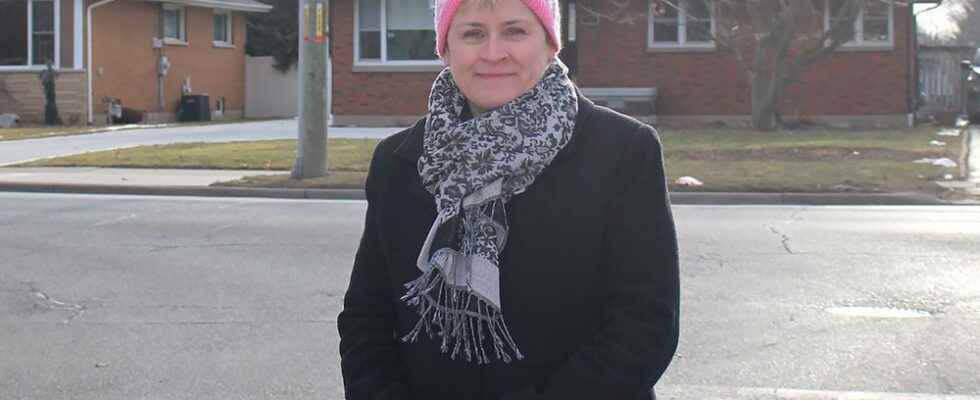Content item
Heather Sowinski doesn’t own a lot of rental units, but she knows what it takes to be a good landlord.
Advertisement
This advertisement has not loaded yet, but your article continues below.
Content item
The Chatham woman credits her 10-plus years as a member of the Chatham-Kent Landlords Association for helping her learn to be a successful landlord.
“I’ve really benefitted in terms of the relationship I have with my tenants,” Sowinski said.
Having a lot of tenant turnover is one of the worst things for a landlord, she said, adding there’s a lot of work involved when a tenant leaves to prepare a unit for a new renter, including finding the right tenant.
“I have really long-term tenants and that’s because, I think that I know what I’m responsible for, I know how to interact with them fairly, I know how to have that tenant-landlord relationship with them,” Sowinski said. “That wasn’t always the case.”
Chatham-Kent Landlords Association president Gordon Milak said the more than 50 members of the association are up slightly from the start of the pandemic.
The municipality is in the midst of a building boom with several subdivisions and apartment buildings under construction or being planned, along with a real estate market that has remained red-hot for several years as people take advantage of Chatham-Kent’s lower housing prices compared to larger urban areas.
Milak said there’s been a turnover with some members retiring, but there are a number of new members who have invested in rental units, but don’t live in Chatham-Kent.
“We see that as a very positive commitment, mainly because they want to be part of a group of ethical landlords,” he said.
Advertisement
This advertisement has not loaded yet, but your article continues below.
Content item
He added the new members “feel it is important to be connected at a local level.”
While there have been stories across the province and country about unethical landlords, Sowinski said the association’s motto is: ‘Supporting successful tenancies – building a stronger community.’
The landlord group bills itself as anti-bad landlord, because those kinds of landlords are bad for the rental industry.
Milak said the association promotes education through a partnership with Chatham-Kent that is the only one of its kind in Canada. The association provides a mandatory course for landlords to join and the municipality offers a 12-hour certification course for tenants, called RentSmart, which includes training on budgeting and communicating with landlords and neighbours.
He noted both courses teach the rights and responsibilities of tenants and landlords.
“What’s been encouraging is we’ve been seeing an increasing number of people attend the landlord education sessions who are not currently (income property) owners,” Milak said.
“They’ve come as part of their preparation to become owners, which we think is just absolutely fantastic,” he added.
Milak said the association’s website – www.chathamapartments.ca – features a tenant’s page with such information as why tenant insurance is so important to have.
“We try to make resources available for everybody,” he said, adding, “Transparency goes a long way to building trust and trust makes successful tenancies.”
Advertisement
This advertisement has not loaded yet, but your article continues below.
Content item
The high cost of homes in Chatham-Kent has made it difficult for people to find affordable rents, but it has also made it harder for the small investor to get into the rental market.
“The days of even landlords expanding and trying to find new units, you can’t even get in at a price-point to offer a more affordable rental price at a tenant,” Sowinski said.
As for the days when investors came in and scooped up low cost properties to convert into rentals, Milak said, “I think the housing prices here have caught up, so I don’t think the investment is the bonanza it would have been a couple of years ago.
“You’re not going to get much of a fixer-upper for $250,000 today,” he added.
Milak said even for a do-it-yourselfer, the costs have increased significantly with building supplies including supply shortages having an impact.
Sowinski said it has also become more difficult to find a contractor to do renovations on an income property, or someone to even do some maintenance work.
Milak said even landlords with long-term tenants are facing some financial pressures due to rising maintenance and utility costs along with property taxes that have all risen higher than rent increases allowed by the province.
There was not rental increase last year and landlords can only raise rents by 1.2 per cent this year, he said.
When asked what would be an ideal increase that would enable tenants to afford it and help landlords cover costs, Milak said, “That’s a really tough call.”
He said there are many facets to this, adding the issue is being looked at by many experts from the Bank of Canada to the Ontario Minister of Finance.
“How do you address one part of the economy without causing unintended consequences in the next?” Milak said.
He believes granting rental increases that are at least tied to the rate of inflation is going to have to be reality.
